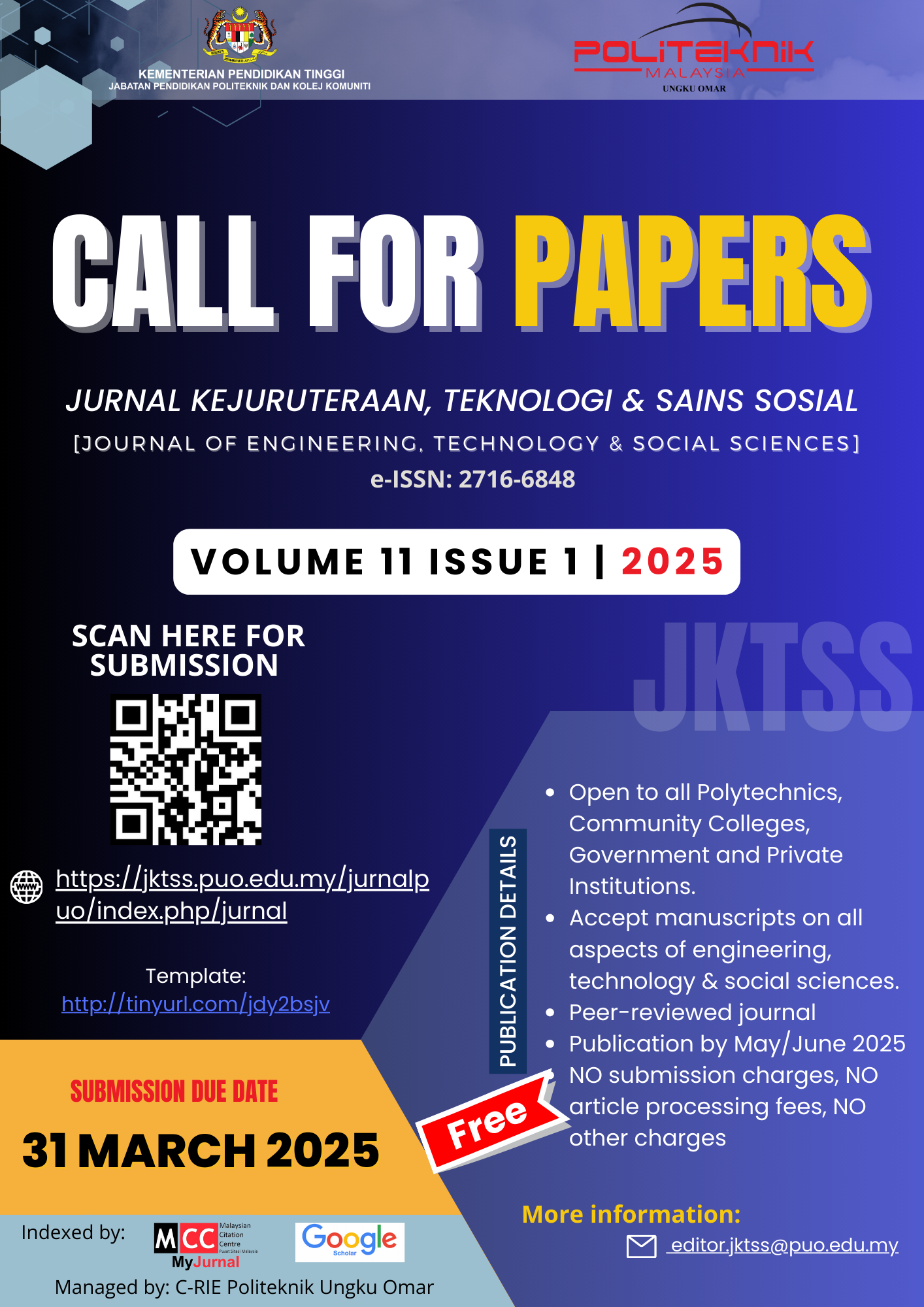Collaboration and Industry Involvement Enhances The Employbility of BCT PUO Graduates
Keywords:
PUO-Industry, Structured OJT, WBL, Work-ready, Graduate EmployabilityAbstract
Collaboration is the fifth (5) pillar in Department of Polytechnic and Community College Education (DPCCE) Strategic Plan 2018-2025 by increasing cooperation with the industry. Thus, Work-Based Learning (WBL) aspires to enhance the students’ learning experience by extending the industry’s collaboration in the design and delivery of technical education programmes. The outcome of this strategy is expected to produce work-read graduates with rapid technology advancement competencies in terms of technical, personal and interpersonal skills that can be acquired through experiential learning that is included in the curriculum. Hence, the Work-Based Learning (WBL) educational strategy helps build the inner strength of polytechnic students to face the challenges of 21st-century learning and the
demands of the 4th Industrial Revolution. The objective of this study is to focus on PUO-Industry strategic collaboration for work-based learning for undergraduate students via structured on-the-job training (OJT) for a period of 10 months. The signing of Notes of Collaboration (NoC) between PUO and industry players has opened great opportunities to the student whilst undergoing their WBL as attachment placement at the participating companies is secured. The findings strongly validate the empowerment of BCT graduates’ marketability by engaging in industry collaboration. Trend analysis of six (6) WBL cohorts had been
analysed to display data over time of graduate employability rate. The result shows that 4 out of 6 cohorts have a 100% graduate employability rate and more graduates were hired by company outside of MBAM participating companies’ bubbles. These graduates have been employed either by the partners’ company or other companies in the same field locally and overseas, some became entrepreneurs, others pursue further studies.










